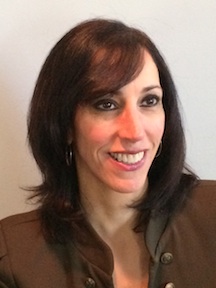By Benjamin Sonnenberg
What’s the first thing you think of when you think of early 20th century Britain? Stiff-lipped men in black business suits, or perhaps women wearing heavy dresses and bonnets? Following an afternoon with University of Maryland Associate Professor of History Julie Taddeo (ΦBK, University of Rochester, 1987), it became clear that the Victorian and Edwardian Ages in Great Britain involved quite a bit more than cool manners and an aversion to sexuality. Taddeo will address this in two forthcoming publications that concern Edwardian Britain’s depiction in TV period dramas like Downton Abbey. Through the prism of this entertainment, and when viewed beyond their sensational characters and occasional bouts of inaccuracy, a general audience can begin to understand the social complexities bubbling beneath the surface of “Pax Britannica.”
Taddeo specializes in, among other topics, gender studies and class history. According to her, the Victorian and Edwardian Ages are an excellent area of study because “gender rules were so strict for women and men.” For both genders, separate spheres dominated life in and out of the home: women were to be chaste mothers and home-builders, while men were measured by their ability to obtain and keep a steady job. Oftentimes, Taddeo explained, the social pressures on both men and women were extreme and oppressive. For example, men could be measured by “how much money you made, whether you could vote, how you spent leisure time,” whether you were athletic, your ability to hunt, etc. Your class was also a defining aspect of your self-concept, as the growth of the middle class and the rise of industrialization further exacerbated class tensions and loyalties.
Downton Abbey, Taddeo believes, is interesting in how it both depicts Edwardian gender and class, and our perceptions and desires vis-à-vis the past. Unlike many of her colleagues, she sees the value of television and media in understanding history and reaching a larger public outside of academe. In her words, “Downton Abbey tells us about what we now value.” For example, on the issue of inter-class relations, Taddeo notes how masters and servants develop friendships and comraderies. In real life, the class system was far more repressive; it was common for masters to never learn the names of their servants, and for female servants, sexual harassment, even assault, was a common experience. Additionally, the militancy of the suffragettes and the violence of the labor strikes, both of which caused serious domestic disruption, rarely feature in the story (perhaps because Downton Abbey is a uniquely aristocratic tale). Yet, there are elements of the series that adequately depict social and sexual tensions. Taddeo mentions the character of Thomas, a butler at Downton Abbey and a closeted gay man who conceals the truth to avoid prison.
In her forthcoming publications, to be featured in a special issue of the Journal of British Cinema and TV and an edited volume for I.B. Tauris, Taddeo will further her analysis of Downton Abbey (among other currently popular period dramas) and Victorianism in television. She believes that shows like Downton Abbey are successful because they tap into a desire, especially strong today, to return to a “fantasy version of history”—one with clear-cut social boundaries, idealized gender roles, but relative acquiescence from all those concerned. Taddeo remains an active iconoclast in her scholarship, analyzing trends through popular media while always remaining devoted to history, which often serves to repudiate idealized visions of gender and class.
When she is not engaged in the aforementioned crusade, Taddeo tackles an equally important issue: public health. For six years now, she and her friend Catherine Cummings have campaigned against the use of toxic pesticides in Takoma Park, Maryland. As a mother, Taddeo says she was personally devoted to cleaning up the neighborhood, especially those places where children are likely to play (and where pesticides are so often sprayed). Despite naysayers and some suspiciously-broken windshields, she and Ms. Cummings have successfully seen through the passage of Takoma Park’s Safe Grow Act, which, according the its website, “places restrictions on the use of cosmetic pesticides for lawn care on public and private property.”
Toward the end of our eclectic conversation, Taddeo discussed how Phi Beta Kappa has made a difference in her life. “It’s important for academics to be well-rounded,” she says. Phi Beta Kappa and its emphasis on the multi-disciplinary nature of the liberal arts education has helped Taddeo in her life as a professor of a timely and complex subject, and in her passion as a feminist and environmentalist. The ΦBK scholarship she received upon graduation from college allowed her to visit the UK and conduct research at the Fawcett Library for Women’s History in London, an experience which served to influence her future career. Indeed, Taddeo is a well-rounded professor or, to use a Victorianism, an afternoonified nip-lug who undoubtedly takes the egg.
Benjamin Sonnenberg is a junior at the University of Maryland, College Park, double majoring in history and education. The University of Maryland is home to the Gamma of Maryland Chapter of Phi Beta Kappa.




